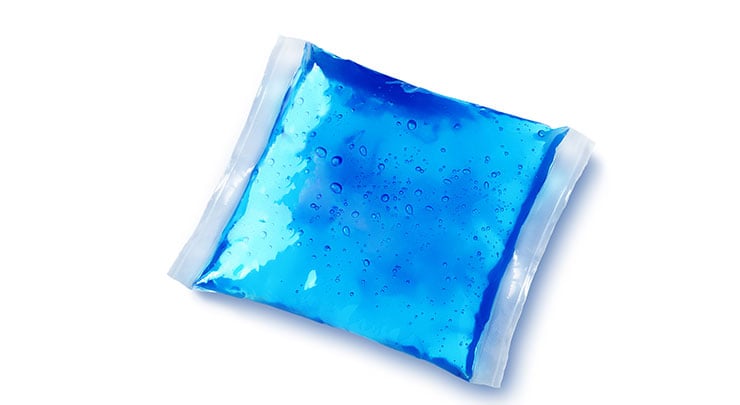
Keep your eyes on the stars, and your feet on the ground.
– Theodore Roosevelt

Keep your eyes on the stars, and your feet on the ground.
– Theodore Roosevelt
You've had your surgery and are eager to see the results. Here's what can you do to make your recovery smoother to see your results faster.
oday's cosmetic surgeons are faced with a continuous demand to fight back against the effects of aging and gravity. This has led to a variety of successful breast lift techniques, each with its own specific recovery details. Each technique offers its own advantages, and we will work with you and your unique body to find the best breast lift method for you.
There are a few things you can to do help your healing and recovery go more smoothly. Aesthetics are often a strong concern for breast lift patients, so here are our top 15 tips to help you have a fast and complication free recovery that will improve your outcome.
Wearing a compression bra or sports bra following your surgery can help accelerate the healing process. These garments help to minimize swelling, improve blood flow in the area, provide support and comfort to the surgical site, and help to flush harmful fluids from the body. They also help the skin to heal into its new shape permanently.

For many people, the first few days following surgery are the most difficult. You may be experiencing some pain and discomfort, but it is important to try to relax and to not move too suddenly. During at least the first few days to a week, most of your time should be spent in bed, or comfortably reclined in a chair…but remember to do the next point, too!
It is vital that you spend most of your time relaxing, but it is equally important that you take short walks throughout the day. This is as simple as a walk around your home. Walking shorty after surgery helps to reduce the risk of blood clots. However, do not bend or lift any heavy objects until you’re ready to do so, with my instruction. This includes children and pets!
-->As with any surgery, your body will need time to recover. You may be ready to return to work after about a week, however, to help your body heal quickly, you should refrain from your full daily activities for at least 2 or 3 weeks. Wait at least 6 weeks before more taxing exercise. Avoid pushing, pulling, lifting, or any other strenuous exercises during this time.
Properly preparing for your surgery can help improve your surgical outcome and results.
– Dr. Leila Kasrai

After your surgery, your chest will be sensitive. To aid the healing process, it is best to try to avoid putting too much pressure on it. Avoid resting on your stomach as much as you can, and try to fall asleep on your back.
Many women find sleeping on their backs challenging. Try propping yourself up with 2 or 3 pillows, or a wedge pillow. This elevation has the added benefit of reducing swelling and pain, as it improves the proper circulation of your blood. You can also try putting a pillow below your knees to prevent you from rolling over as you sleep. Some women even place body pillows next to themselves in bed to create a more comfortable “nest.”
If you are a smoker, it is imperative that you continue the cigarette fast you started a few weeks before surgery. Smoking reduces blood flow in your skin and slows and complicates healing. Abstain from smoking for at least the first 2 weeks of recovery.
Your recovery time is not the time to travel to far away lands to visit long-lost relatives. You should stay close to our offices for at least the first few days, in the unlikely event you develop a problem that requires immediate attention

Your first instinct when experiencing pain during recovery might be to use an ice pack to help with swelling. It's best to avoid this. Ice should not be used with breast lift surgeries because it decreases vital blood flow to the surgical incisions. You’ll also be numb from the swelling, and this could prevent you from feeling pain as a sign of impending frostbite. Instead, apply a cold compress for 20 minutes, remove for 40, and repeat as necessary. Do not use ice.
Sponge baths will be a necessity for the first couple days after your surgery. Washing your hair will also be difficult for a while because lifting your arms over your head will not be advised. Ask for help if you need it.
As you heal and are able to return to your normal routine, you will still need to take special care when bathing. During the first several weeks of recovery your showers should be only moderately warm. Hot and/or steamy water can worsen swelling, and your chest will be sensitive to high temperatures.
Proper nutrition is especially important for someone recovering from surgery! Your body needs all the healthy food it can get to fuel its healing. Avoid extra salt, as it can worsen swelling, and eat lots of vitamin rich foods like leafy greens, eggs, and yogurt. Vitamin K is especially important, as it helps with blood clotting.
Be sure to take all your medications as they have been prescribed to you. This includes completing the full antibiotics regimen. You may switch from the prescription pain medication to acetaminophen (Tylenol) as your pain allows. However, you should continue to avoid aspirin and aspirin-like medications for at least 2 weeks. If you experience any problems with the prescribed medication, please let me know. I can prescribe an alternate medication.
Keep track of all changes your body makes as it heals. Contact us immediately in the event of bleeding, increased bruising and swelling, or a discharge.
Your scars should be protected from the sun as much as possible for at least the first year after your surgery. Too much exposure to the sun will impede their fading. Make sure to either keep them covered, or use a total sun block.